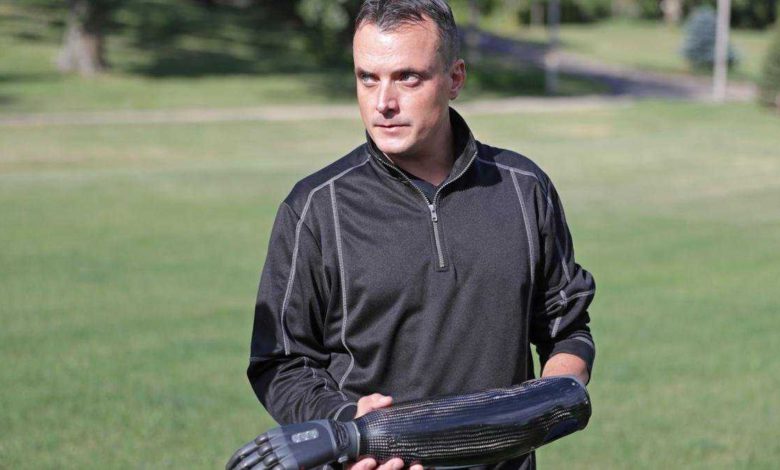
for the dog owners out there, throw them a bone this fourth and protect their ears. Same goes with cats otherwise the noise from the fireworks could be fatal. Take it from veterinarians, the new york post spoke with a Brooklyn based veterinarian told the post. Male cats can get so stressed out by loud noises. It can lead to life threatening obstructions down there. The infection in their bladder makes it difficult for them to urinate and this can be fatal. Call your vet if you notice blood in their urine or see them running in and out of the litter box. But Fido's not off the hook or the leash, you're not alone. If you notice your dog doesn't want to go on walks late at night or trembles when you go outside, a different veterinarian tells the post. Constant stressful events like fireworks can have psychological or behavioral long term effects they can get so spooked that they run away more dogs run away in july than any other month. According to studies by the American Society for the prevention of cruelty to animals or a. S. P. C. A. To keep your pets safe. NBC News says make sure all the windows and doors are closed. Make sure their I. D. Collars on and current or play youtube videos of fireworks until your four legged friend gets used to the sound loud tv or radio noise can help drown out the fireworks. Taking them for a walk or having playtime before the festivities should tire them out. Another route is to talk to your veterinarian about anti anxiety medication and give them a practice dose before the big night to see how they'll react.
Man lost hand after fireworks accident
Related video: How to Keep Your Pet Calm During July Fourth FireworksWhen Ben Shortreed and friends lit fireworks in his yard before the Fourth of July last year, a shell exploded in his left hand, causing damage so severe a surgeon had to amputate the hand that night.A neighbor who later searched in vain for Shortreed's wedding ring found one of his fingers about 100 feet from the site of the blast."A harmless, low-key family day turned into a pretty life-changing event," said Shortreed, 42, who lives in the town of Verona and is part owner of an insurance agency in Middleton.His story serves as a cautionary tale about fireworks and underscores the challenges of treating pain, including with opioids.A few days after his injured hand was removed at the wrist on June 27, 2020, at UW Hospital, Shortreed started feeling phantom pain. It felt like his missing thumbnail was being ripped off, he said. On his absent index finger and ring finger, it seemed, "somebody was driving a needle or pin straight down the middle of the bone," he said.At times, he sensed, "my hand was clenched like a fist, and my knuckles were being dragged across rough gravel," said Shortreed, a Marine Corps veteran. "It was absolutely torturous and excruciating, and this was 24-7."His doctors at Madison's Veterans Hospital increased the dosage of his medications. In addition to over-the-counter pain relievers, he was taking muscle relaxants, nerve medications and the opioid painkillers morphine and oxycodone.One of the nerve medications, gabapentin, gave him "brain fog," he said. As the weeks wore on, he felt he was becoming addicted to the opioids. He started having hallucinations, imagining he was locked in a box and bones were buried in his basement. He wasn't sure how he could keep running his business. He and his wife, Kara Flentje, who were trying to adopt a daughter from Colombia, wondered if they would have to stop the process."Sleep was by pure exhaustion. I was lucky to get 90 minutes from time to time," Shortreed said. "This was definitely taking me to the breaking point."Pain reliefIn mid-August, at UW Health's pain clinic, he tried a procedure called peripheral nerve stimulation. Two thin wires were implanted near a bundle of nerves between his neck and shoulder. For 60 days, he wore a small transmitter on his chest that stimulated the wires with electricity."I had immediate relief," he said. "I haven't had a single phantom pain or feeling since."The effect can be long term because the process resets pain receptors, said Dr. Alaa Abd-Elsayed, medical director of UW Health's pain clinic, who performed the outpatient procedure."You lock the gate so other stimuli cannot travel to the brain," Abd-Elsayed said. "When pain comes through the same pathway, it will find the gate closed by another stimulation and will not travel."The device, by Cleveland-based SPR Therapeutics, was approved by the Food and Drug Administration in 2018. It is also being used at UW Health on patients with back, foot and chest pain, Abd-Elsayed said.When Shortreed tried to stop taking the opioids all at once, he got sick from withdrawal. But he managed to wean himself off the drugs in two weeks. By January, he was off all pain and nerve medication."It wasn't until I had clarity being drug-free did I realize how impaired I actually was on that cocktail of drugs," he said.Toward normalcyShortreed has two prostheses, a basic one he uses for work around the house and a flexible, waterproof one with sensors that read muscle movement on his forearm to allow the hand to open, close and grip.He's back to running Avid Risk Solutions with co-founder Brock Ryan, and the two have joined others in starting or acquiring companies involved in clothing, antimicrobial products, golf equipment and track-and-field competitions.In April, Shortreed and Flentje adopted Ashly Elaine, a 13-year-old girl from Colombia they hosted in December 2019 through an orphan housing agency. He got another wedding ring, which he wears on his right hand.Please note: This content carries a strict local market embargo. If you share the same market as the contributor of this article, you may not use it on any platform.
Related video: How to Keep Your Pet Calm During July Fourth Fireworks
When Ben Shortreed and friends lit fireworks in his yard before the Fourth of July last year, a shell exploded in his left hand, causing damage so severe a surgeon had to amputate the hand that night.
A neighbor who later searched in vain for Shortreed's wedding ring found one of his fingers about 100 feet from the site of the blast.
"A harmless, low-key family day turned into a pretty life-changing event," said Shortreed, 42, who lives in the town of Verona and is part owner of an insurance agency in Middleton.
His story serves as a cautionary tale about fireworks and underscores the challenges of treating pain, including with opioids.
A few days after his injured hand was removed at the wrist on June 27, 2020, at UW Hospital, Shortreed started feeling phantom pain. It felt like his missing thumbnail was being ripped off, he said. On his absent index finger and ring finger, it seemed, "somebody was driving a needle or pin straight down the middle of the bone," he said.
At times, he sensed, "my hand was clenched like a fist, and my knuckles were being dragged across rough gravel," said Shortreed, a Marine Corps veteran. "It was absolutely torturous and excruciating, and this was 24-7."
His doctors at Madison's Veterans Hospital increased the dosage of his medications. In addition to over-the-counter pain relievers, he was taking muscle relaxants, nerve medications and the opioid painkillers morphine and oxycodone.
One of the nerve medications, gabapentin, gave him "brain fog," he said. As the weeks wore on, he felt he was becoming addicted to the opioids. He started having hallucinations, imagining he was locked in a box and bones were buried in his basement.
He wasn't sure how he could keep running his business. He and his wife, Kara Flentje, who were trying to adopt a daughter from Colombia, wondered if they would have to stop the process.
"Sleep was by pure exhaustion. I was lucky to get 90 minutes from time to time," Shortreed said. "This was definitely taking me to the breaking point."
Pain reliefIn mid-August, at UW Health's pain clinic, he tried a procedure called peripheral nerve stimulation. Two thin wires were implanted near a bundle of nerves between his neck and shoulder. For 60 days, he wore a small transmitter on his chest that stimulated the wires with electricity.
"I had immediate relief," he said. "I haven't had a single phantom pain or feeling since."
The effect can be long term because the process resets pain receptors, said Dr. Alaa Abd-Elsayed, medical director of UW Health's pain clinic, who performed the outpatient procedure.
"You lock the gate so other stimuli cannot travel to the brain," Abd-Elsayed said. "When pain comes through the same pathway, it will find the gate closed by another stimulation and will not travel."
The device, by Cleveland-based SPR Therapeutics, was approved by the Food and Drug Administration in 2018. It is also being used at UW Health on patients with back, foot and chest pain, Abd-Elsayed said.
When Shortreed tried to stop taking the opioids all at once, he got sick from withdrawal. But he managed to wean himself off the drugs in two weeks. By January, he was off all pain and nerve medication.
"It wasn't until I had clarity being drug-free did I realize how impaired I actually was on that cocktail of drugs," he said.
Toward normalcyShortreed has two prostheses, a basic one he uses for work around the house and a flexible, waterproof one with sensors that read muscle movement on his forearm to allow the hand to open, close and grip.
He's back to running Avid Risk Solutions with co-founder Brock Ryan, and the two have joined others in starting or acquiring companies involved in clothing, antimicrobial products, golf equipment and track-and-field competitions.
In April, Shortreed and Flentje adopted Ashly Elaine, a 13-year-old girl from Colombia they hosted in December 2019 through an orphan housing agency. He got another wedding ring, which he wears on his right hand.
Please note: This content carries a strict local market embargo. If you share the same market as the contributor of this article, you may not use it on any platform.
Source link








